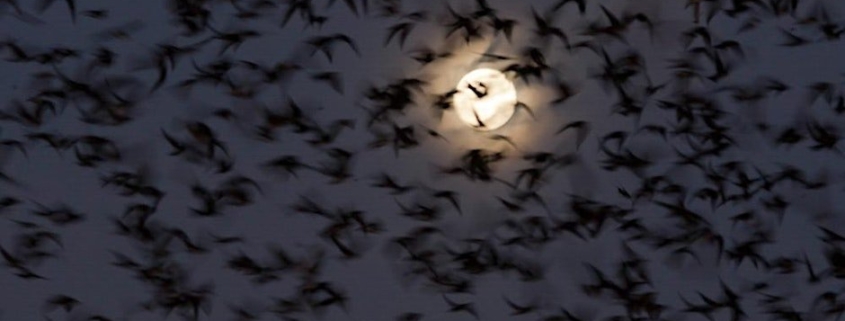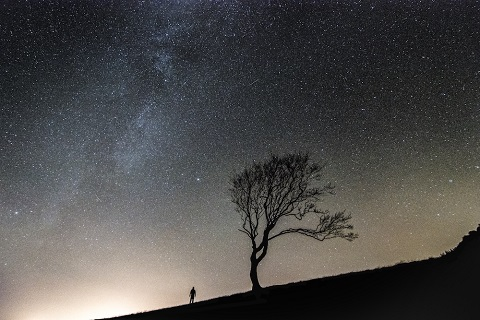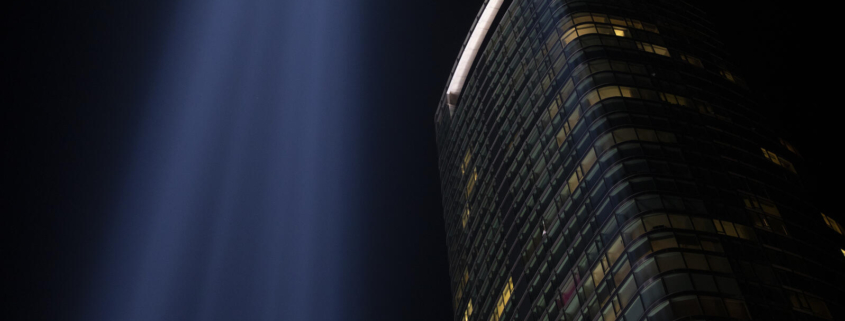Watch Now: Video on How to Protect Northern Virginia Birds
Photo: Purple Martins, Keith Kingdon/Audubon Photography Awards
From the Northern Virginia Bird Alliance
Over 100 million birds migrate through northern Virginia each spring, and 160 million migrate through each fall. Their journeys are perilous because they can be attracted to and disoriented by brightly lit buildings and crash into them or waste precious energy flying around the lights.
Birds that live here risk colliding with glass and other reflective surfaces, and light pollution disrupts their feeding, sleeping and reproduction, as well as that of the plants and insects on which they depend. NVBA has established a partnership with Loudoun Wildlife Conservancy, DarkSky Virginia, DarkSky NOVA, Nature Forward, the Friends of Dyke Marsh and the Friends of Little Hunting Creek to initiate a Bird Safe NOVA campaign. Check out the recording of their recent webinar here.





